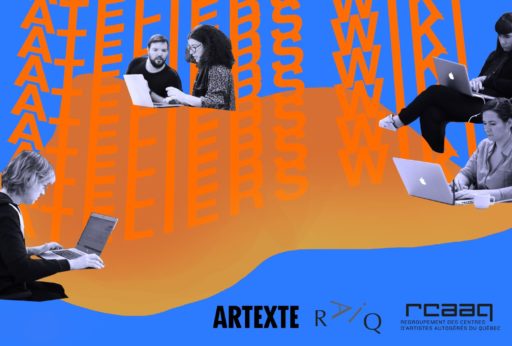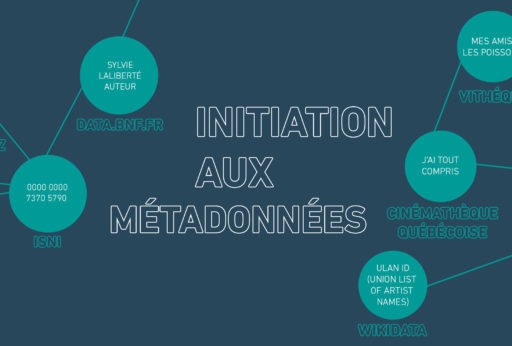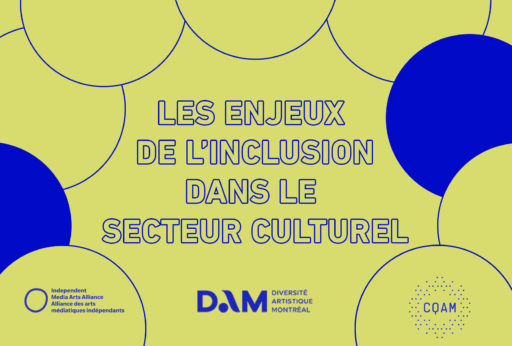The goal of this workshop is to enable organizations to better understand how “digital thinking” is articulated in the cultural context.
The goal of this workshop is to enable organizations to better understand how “digital thinking” is articulated in the cultural context. Within a practical context, each participant will be individually supported over a two-month period to learn how to implement a digital “action,” of their choosing, within their organization.
This workshop is offered in collaboration with the Regroupement des arts interdisciplinaires du Québec (RAIQ) and the Regroupement québécois de la danse (RQD) and benefits from financial support from Emploi-Québec.
—
The upheavals caused by the advent of digital technology have not spared the cultural sector. Here too, changes are profound and transversal. Not only are the ways in which artistic productions researched, experienced, consumed and appreciated affected, but also the form of the artworks themselves, the issues they raise, their target audiences as well as the strategies used to reach those audiences.
In spite of the scope of these changes, this “digital shift” implies more of a continuation than a rupture for local organizations and artists. Indeed, the “thinking” underlying digital technology is in line with their values and ways of doing: creativity, collaboration, iterative approaches, innovation, sharing, etc. All that remains is to make the shift easier.
The workshop is based on collaborative learning: discussion seminars; practical application with personalized support; collective feedback on each of the solutions implemented in order to share experiences with all participants. At the end of the workshop, participants will be able to:
- understand major digital issues in relation to their specific practical contexts;
- see that the digital shift is not in opposition to the mandate of their organization, but rather is closer to its guiding principles;
- develop a comprehensive digital strategy;
- reassess their operations in terms of governance, creation and dissemination, as they relate to digital technology;
- act as “pollinators” in their respective working environments to pass on the acquired knowledge;
- promote the synchronization of the cultural and artistic milieus with the reality of the digital age.
This workshop is intended for managers, administrators, cultural workers and administrative and artistic directors of arts non-profit organizations.
Date: Thursday, January 17 and Friday, January 25, 2019
Cost: $95
Time: 9 a.m. to 5 p.m.
Location: Oboro Studio, 4001 Berri Street, 2nd Floor, Montreal
Registration period: Deadline: January 14, 2019.
8 places available
Please complete the registration form.
Participants must propose an action that they wish to implement in their organization, where participants will use digital thinking in its implementation. The action must relate to one of the following fields of activity: management, communications, dissemination or creation. As the project must be completed in two months, the action must be simple.
Send all info to info(a)cqam.org
INSTRUCTOR
Mériol Lehmann
Mériol’s experience as an artist and cultural manager in the field of media arts has enabled him to develop advanced skills in digital culture. He has had the opportunity to carry out consulting mandates for the Service de la Culture de la Ville de Québec, the Conseil de la Culture des régions de Québec et Chaudière-Appalaches et Bibliothèque de Québec. Mériol Lehmann has also presented several conferences on the paradigm shifts brought about by digital technology and to what extent these changes are an opportunity for the arts and culture community.
——
As part of the workshop Leveraging the connections between digital culture and digital thinking, CQAM has developed tools to help organizations reflect on the transformations brought about by the “digital shift” and to implement changes within their organizations.




